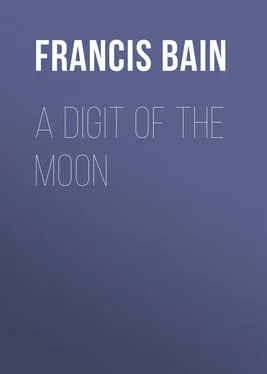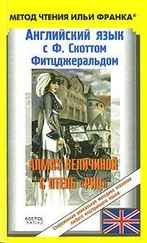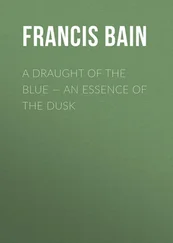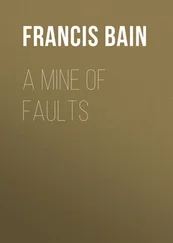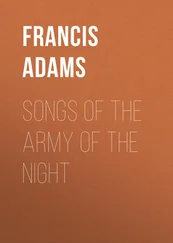Francis Bain - A Digit of the Moon
Здесь есть возможность читать онлайн «Francis Bain - A Digit of the Moon» — ознакомительный отрывок электронной книги совершенно бесплатно, а после прочтения отрывка купить полную версию. В некоторых случаях можно слушать аудио, скачать через торрент в формате fb2 и присутствует краткое содержание. Жанр: foreign_antique, foreign_prose, на английском языке. Описание произведения, (предисловие) а так же отзывы посетителей доступны на портале библиотеки ЛибКат.
- Название:A Digit of the Moon
- Автор:
- Жанр:
- Год:неизвестен
- ISBN:нет данных
- Рейтинг книги:4 / 5. Голосов: 1
-
Избранное:Добавить в избранное
- Отзывы:
-
Ваша оценка:
- 80
- 1
- 2
- 3
- 4
- 5
A Digit of the Moon: краткое содержание, описание и аннотация
Предлагаем к чтению аннотацию, описание, краткое содержание или предисловие (зависит от того, что написал сам автор книги «A Digit of the Moon»). Если вы не нашли необходимую информацию о книге — напишите в комментариях, мы постараемся отыскать её.
A Digit of the Moon — читать онлайн ознакомительный отрывок
Ниже представлен текст книги, разбитый по страницам. Система сохранения места последней прочитанной страницы, позволяет с удобством читать онлайн бесплатно книгу «A Digit of the Moon», без необходимости каждый раз заново искать на чём Вы остановились. Поставьте закладку, и сможете в любой момент перейти на страницу, на которой закончили чтение.
Интервал:
Закладка:
F. W. Bain
A Digit of the Moon / A Hindoo Love Story
PREFATORY NOTE TO SECOND EDITION
The better to illustrate how, in Hindoo mythology, the ideas of a beautiful woman , the Moon , and the Sea , dissolve and disappear into one another, I have placed on the fly-leaf of this edition a single stanza, drawn from another part of my MS., which characteristically exemplifies that dissolving view : subjoining here, for the benefit of the uninitiated, a literal translation:
O thou lovely Incarnation of the Nectar-dropping Moon, come down from Heaven to lighten our Darkness: Delight of the Race of Man: retaining in thy Womanhood the dancing Play of the Waves of that Sea of Milk out of which thou wert originally churned by the Gods: we the Three Worlds ( i. e. of Childhood, Manhood, and Age ) do worship the Orb of thy Bosom that possesses for us a Threefold Mystical Feminine Energy 1 1 The last lines contain recondite philosophical allusions to the Creation, Preservation, and Destruction of the World, and other matters, in technical terms which defy translation. Life in Hindoo philosophy, as in that of the Middle Ages, carries about with it a perfume of death: there is in its atmosphere something melancholy, and even a little morbid, like the slow tolling of a bell.
being a Pitcher of Milk for us, when we are Born: a Pillow for us, in the Middle of the Path of Life: and a Shrine, in which we take refuge to die at the last.
But we lose, in a literal prose version, the reverberation, and the echo of the Sea, which undertones the meaning of the words like the accompaniment to a song. This sound we might make some attempt to preserve, without doing violence to the sense , as follows;
Like a New MODE'S exquisite Incarnation,
In the Ebb and Flow of a Surging Sea,
Wave-breasted Beauty, the whole Creation
Wanes, and waxes, and rocks on thee!
For we rise and fall on thy Bosom's Billow
Whose heaving Swell is our Home Divine.
Our Chalice at Dawn, and our hot Noon's Pillow,
Our Evening's Shrine.
PREFACE TO FIRST EDITION,
A Digit of the Moon is the sixteenth part of a much longer work, entitled The Churning of the Ocean of Time 2 2 Sansára-ságara-manthanam .
. A well-known Hindoo legend recounts how the gods and antigods assembled to churn the ocean of milk 3 3 For milk the author has substituted a technical word which means the world considered as the scene of never-ending transmigrations . (' O world! O life! O time! ') By this he implies that the nectar of his work it the residuum of much churning of life and experience of the world, and that it is destined to be immortal.
for the nectar of immortality. After throwing in herbs of various kinds, they churned it with Mount Mandara, and obtained the nectar, with certain other things, one of which was the MOON, who by the way is often called 'the Lord of Herbs.'
But in Sanskrit, the Moon, like the Sun, is a male. Hindoo poets get over this difficulty, when they want a female Moon, by personifying his attributes, or making a part do duty for the whole. Thus, his disc is divided into sixteen parts, called ' streaks ' or ' digits ' and a beautiful woman is ' a digit of the moon .'
The whole work, then, called ' The Churning of the Ocean of Time ,' is, like the Moon, divided into sixteen parts, each named after one of the digits of the Moon. The one now before the reader is called A Digit of the Moon, turned red by the rays of the dawning Sun 4 4 I have never experienced a stranger or more delightful sensation than when, as I was translating this work, I saw this very phenomenon on the Ghauts at Mahábaleshwar: a blood-red Moon going down into the hills at early dawn, with the Sun rising on the opposite peaks. Only the redness which the poet ascribes to the Sun was of course due to the haze of the atmosphere.
. The point lies in the play on the word red, which in the original also means ' enamoured ,' ' in love .' That is to say, that the heroine of the story 'turns red,' i. e. falls in love with the hero, whose name, it will be found, is Süryakánta, or 'Sunstone.'
I little thought, ten years ago, that it would ever be my lot to play, as it were, the part of Boccaccio, and bring forth meat from the eater, stories from a plague. Yet here also the unexpected came about, in the following way.
Considering how recently Europe has become aware of the very existence of a Sanskrit literature, I had often wondered whether there might not be hidden away, here and there, in the vast ocean of India, literary treasures still undiscovered, which future 'churning' might bring up. But I did not expect that my question would ever receive a practical answer. However, a few years ago, when the plague was decimating the city of Poona, carrying off its victims by hundreds a day, personal acquaintance with some of the officers appointed by Government to cope with the enemy put it into my power to do a slight service to an old Marátha Brahman, whose name, by his own particular desire, I suppress. My 'service' was indeed a mere trifle, a thing of which no Englishman would have thought twice. Hindoos, however, look on these matters with very different eyes. An Englishman's house may be his castle, but a Hindoo's house is a shrine, a holy of holies, which for unhallowed footsteps to invade is desecration. I was amused to find that my old Brahman regarded me almost as though I had preserved his family from nameless and everlasting infamy. And when he subsequently discovered that I was a humble student of the 'polished, sacred' language, and could make shift to admire his beloved Kálidás in the original, his esteem for me rose to a degree almost embarrassing. He came two or three times to see me, and took an obvious pleasure in dilating on the beauties of his ancient authors to one who was at least a good listener. But it struck me as curious, that every time he went away he seemed as it were labouring to deliver himself of some important communication, which nevertheless he shrank from discovering to me; and he always eventually departed, with an air of some confusion, and his secret left untold. I thought at the time that he was only nerving himself to make some request of me, of which he doubted the reception, and was unable to screw his courage to the sticking-point. But I was mistaken.
Our interviews came to an abrupt conclusion. The plague stepped in and swept his family clean away, carrying off his wife, all his children, and various others of his kin, leaving him alone untouched – but not for long. One evening, when I came home late, having been out nearly all day, I found on my doorstep a messenger who had been waiting for me, with the inexhaustible patience of an Oriental, for many hours. The plague had remembered my old Brahman at last, and he had sent to ask me to come and see him, 'on business of importance.' I went off accordingly to a segregate camp, whither he had been removed, and, much to my relief, arrived in time to find him conscious: for he was a fine old gentleman, and when a Brahman is a gentleman, he is a striking type of humanity. He confused me by thanking me, for the hundredth time, for my good offices, adding, however, that they had been, in a certain sense, wasted, as he was the only one left of his family, and now he also, he was glad to say, was going the same way. He said, that he had been anxious to see me before he died, because he had something of value to give me. Hereupon he produced what the uninitiated might have taken for a packet of ladies' long six-button gloves, pressed together between two strips of wood about the size of a cheroot box, and tied round with string; but which from experience I knew to be a manuscript 5 5 Though I make no attempt to assign a date to this MS., the reader should observe that in India printing has not superseded hand work. The Hindoos have religious prejudices against printed books, and they will not use them in their temples, or for sacred purposes.
Интервал:
Закладка:
Похожие книги на «A Digit of the Moon»
Представляем Вашему вниманию похожие книги на «A Digit of the Moon» списком для выбора. Мы отобрали схожую по названию и смыслу литературу в надежде предоставить читателям больше вариантов отыскать новые, интересные, ещё непрочитанные произведения.
Обсуждение, отзывы о книге «A Digit of the Moon» и просто собственные мнения читателей. Оставьте ваши комментарии, напишите, что Вы думаете о произведении, его смысле или главных героях. Укажите что конкретно понравилось, а что нет, и почему Вы так считаете.
